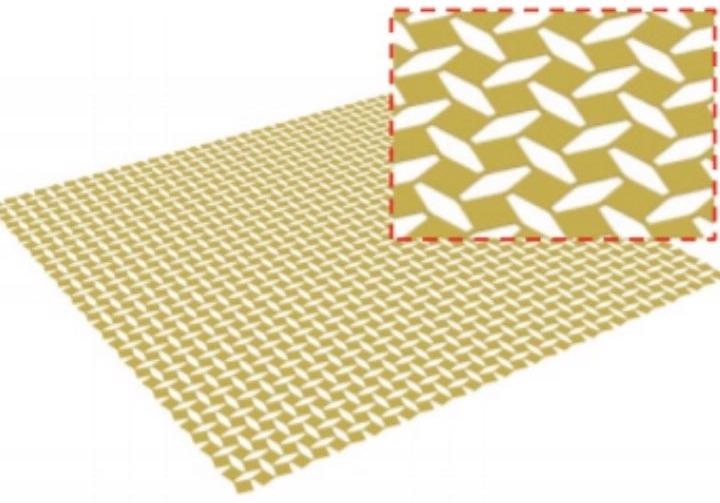Jun 29 2021
The development of a camera with a curvy and adaptable imaging sensor that could enhance image quality in night-vision goggles, endoscopes, fish-eye cameras and artificial compound eyes has been reported by Cunjiang Yu, Bill D. Cook Associate Professor of Mechanical Engineering from the University of Houston.
 Schematic of a biaxially stretched kirigami sheet. Image Credit: University of Houston.
Schematic of a biaxially stretched kirigami sheet. Image Credit: University of Houston.
Existing curvy imagers are either flexible but not compatible with tunable focal surfaces, or stretchable but with low pixel density and pixel fill factors. The new imager with kirigami design has a high pixel fill factor, before stretching, of 78% and can retain its optoelectronic performance while being biaxially stretched by 30%.
Cunjiang Yu, Bill D. Cook Associate Professor of Mechanical Engineering, University of Houston
Modern digital camera systems that make use of traditional rigid, flat imaging sensors would need heavy and complicated lenses to rectify optical aberrations. At the same time, the curvy camera, similar to a human eyeball, can function with a single lens while rectifying aberrations and providing other merits, like the small size and extensive field of view.
Yu has demonstrated that the curvy and shape-adaptive cameras that have high pixel fill factors can be made by shifting a range of ultrathin silicon pixels with the help of a kirigami design onto curvy surfaces with the help of conformal additive stamp (CAS) printing, a manufacturing technology invented in his laboratory.
Kirigami is the Japanese art of cutting paper, which is quite similar to paper folding, or origami. Yu made use of the kirigami principle on a thin sheet of imaging sensors, thereby making cuts that enable it to expand and curve.
This latest kirigami structure possesses a much greater fill factor, implying that it holds high pixel density, thereby making better images than other stretchy structure designs like island-bridge structures or thin open-mesh serpentine.
The camera is not only curvy, but Yu makes it shape-adaptive, thereby allowing it to clearly capture objects at various distances.
The new adaptive imager can achieve focused views of objects at different distances by combining a concave-shaped camera printed on a magnetic rubber sheet with a tunable lens. Adaptive optical focus is achieved by tuning both the focal length of the lens and the curvature of the imager, allowing far and near objects to be imaged clearly with low aberration.
Cunjiang Yu, Bill D. Cook Associate Professor of Mechanical Engineering, University of Houston
Yu is also a principal investigator of the Texas Center for Superconductivity at UH.
CAS printing involves inflating a stretchy, or elastomeric, balloon with a sticky coating. It is then employed as a stamping medium that helps push down on pre-fabricated electronic devices to collect the electronics and then print them onto different curvy surfaces.
Besides Yu, other researchers involved in the study include first authors Zhoulyu Rao and Yuntao Lu, both from UH; Zhengwei Li and Jianliang Xiao, University of Colorado, Boulder; Zhenqiang Ma, University of Wisconsin-Madison; and Sim Kyoseung, a former member of the Yu group and now an assistant professor at the Ulsan National Institute of Science and Technology in Ulsan, Korea.
Journal Reference:
Rao, Z., et al. (2021) Curvy, shape-adaptive imagers based on printed optoelectronic pixels with a kirigami design. Nature Electronics. doi.org/10.1038/s41928-021-00600-1.